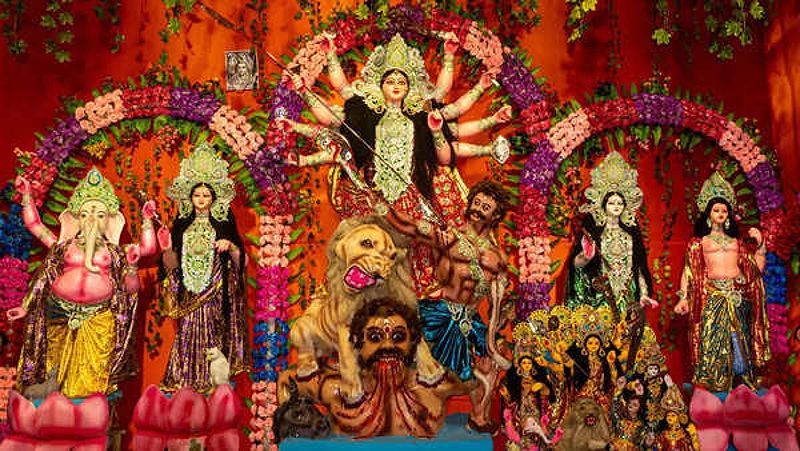Discover the items to avoid purchasing during Navratri, a nine-day festival dedicated to honoring the divine feminine energy. Learn why Hindus refrain from buying non-vegetarian food, iron products, electronics, black clothing, rice, and sharp objects during this auspicious period. Embrace the essence of Navratri and celebrate the divine energy of Goddess Durga.
Why Avoid Non-Vegetarian Food During Navratri?
Navratri, a nine-day festival celebrated in the month of Chaitra according to the Hindu lunar calendar, holds significant importance for Hindus worldwide. It is a time dedicated to honoring the divine feminine energy embodied by Goddess Durga. During this period of devotion and purity, Hindus refrain from consuming and purchasing non-vegetarian food products.
The practice of maintaining food purity and consuming a sattvic diet, consisting of fresh fruits, vegetables, dairy products, and grains, is believed to purify the body and mind. It aligns individuals with spiritual energies, enhancing the effectiveness of their fasts and prayers. Avoiding non-vegetarian food during Navratri symbolizes devotion and respect for all forms of life.
The Iron Ban: Why Should Iron Products Be Avoided?
Another item to avoid purchasing during Navratri is iron. Iron is believed to carry heavy and negative energy, which can disrupt the spiritual peace of the individual and their family. It is advised to refrain from buying iron products such as utensils, tools, materials, and furniture during Navratri. Instead, alternative materials like stainless steel or copper are preferred.
Electronics and Navratri: Why Limit Their Usage?
Electronics are also discouraged during Navratri. They are associated with materialism and can distract individuals from their spiritual practices. Engaging excessively with electronic devices and the image-focused content they provide may hinder spiritual progress. Many believe that the energy emitted by electronic gadgets and the content consumed from them can interfere with the positive vibrations individuals seek during this spiritual period. Therefore, it is recommended to spend wisely, avoid purchasing electronics, and limit their usage during Navratri.
The Significance of Avoiding Black Clothing
In the realm of religion and spirituality, the color black is often considered a bad omen. As Navratri is a festival of purity, positivity, and divine energy, wearing or buying black is highly discouraged. Black is associated with mourning and negativity in Hinduism, and its presence during Navratri is believed to attract negative energy and create obstacles on the spiritual journey. Instead, wearing bright and vibrant colors such as red, pink, yellow, and green promotes a sense of festivity and joy.
Rice and Navratri: Why is it Avoided?
Rice, a staple food in many Hindu households, is often avoided during Navratri. Since fasting is prevalent during this period, the consumption of grains, including rice, is limited or eliminated. Additionally, the starchy nature of rice is believed to induce laziness and lethargy, which is counterproductive to the spiritual energy sought during Navratri. Instead, alternative flours like buckwheat, amaranth, or water chestnut flour are preferred to maintain a sattvic diet.
Why Sharp Objects Should be Avoided
Sharp objects, such as knives, scissors, and needles, should be avoided during Navratri. These objects are associated with the potential for harm and injury. During Navratri, when individuals seek spiritual growth and protection from negative energies, the presence of sharp objects in the household is considered inauspicious. It is believed that such items may attract accidents or disruptive energies, hindering the positivity in the house.
Embrace the Essence of Navratri
Navratri is a time of devotion, purity, and spiritual upliftment. By adhering to these guidelines and avoiding the purchase of certain items, individuals can enhance their spiritual experience during this auspicious festival. Let us celebrate the divine feminine energy of Goddess Durga and embrace the essence of Navratri.


